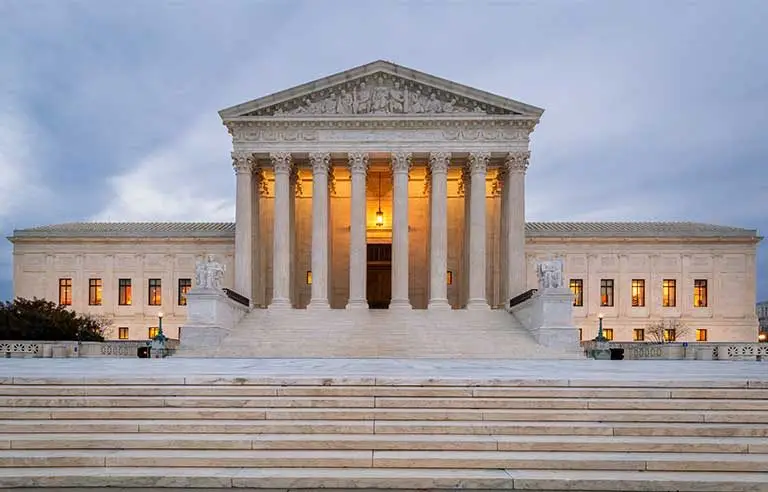
Photo: joe daniel price/gettyimages
Washington — The Supreme Court has declined to hear a case regarding OSHA’s authority to issue and enforce safety standards.
The decision, issued July 2, was for Allstates Refractory Contractors LLC v. Julie Su. The Cincinnati-based 6th U.S. Circuit Court of Appeals ruled against Allstates in a 2-1 decision on Aug. 23, as did the Northern District of Ohio in September 2022.
The Allstates case had attempted to argue that Congress can’t delegate its legislative authority to the executive branch (of which federal agencies are part) because of Article I of the Constitution. However, the Supreme Court has provided a framework for delegation in its rulings on other cases over the years, including J.W. Hampton, Jr. & Co. v. United States in 1928.
The high court, led by former president William Howard Taft, ruled unanimously that Congress could delegate its legislative authority as long as it provided an “intelligible principle” as guidance for federal agencies.
The court has also used its “major questions” doctrine as a guideline in recent cases. That doctrine, the opposite of the recently overturned Chevron deference, requires Congress to “speak clearly” on a particular subject or “when authorizing an agency to exercise powers of vast economic and political significance.”
Many would argue that the Occupational Safety and Health Act of 1970 is an example of “speaking clearly” when it comes to OSHA’s power to regulate workplace safety.
The high court already affirmed OSHA’s authority to issue and enforce health standards in 1980 in Industrial Union Department, AFL-CIO v. American Petroleum Institute, also known as the Benzene Case.
The July 2 opinion states that Justice Neil Gorsuch would have granted Allstates’ appeal to the Supreme Court to take up this case. Justice Clarence Thomas wrote a dissent to the denial of that appeal.
“I continue to adhere to my view that the intelligible principle test ‘does not adequately reinforce the Constitution’s allocation of legislative power,’” Thomas writes. “This case exemplifies the problem. Congress purported to empower an administrative agency to impose whatever workplace-safety standards it deems ‘appropriate.’ That power extends to virtually every business in the United States.”
McCraren Compliance offers many opportunities in safety training to help circumvent accidents. Please take a moment to visit our calendar of classes to see what we can do to help your safety measures from training to consulting.
Original article published by Safety+Health an NSC publication


